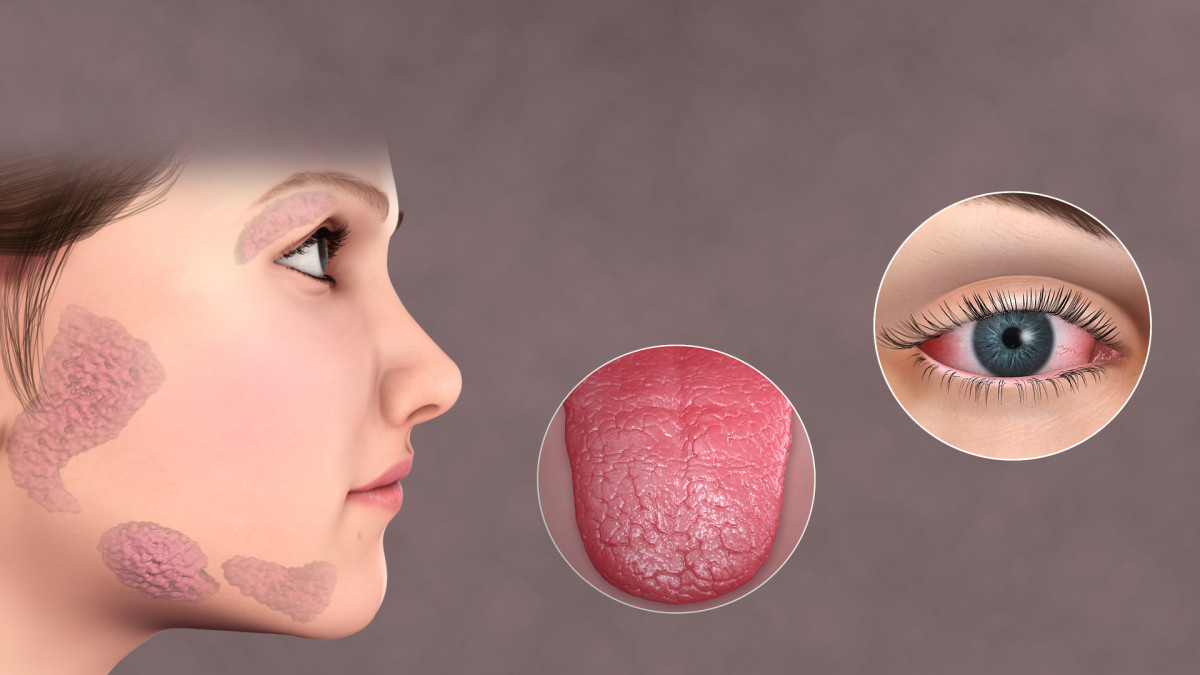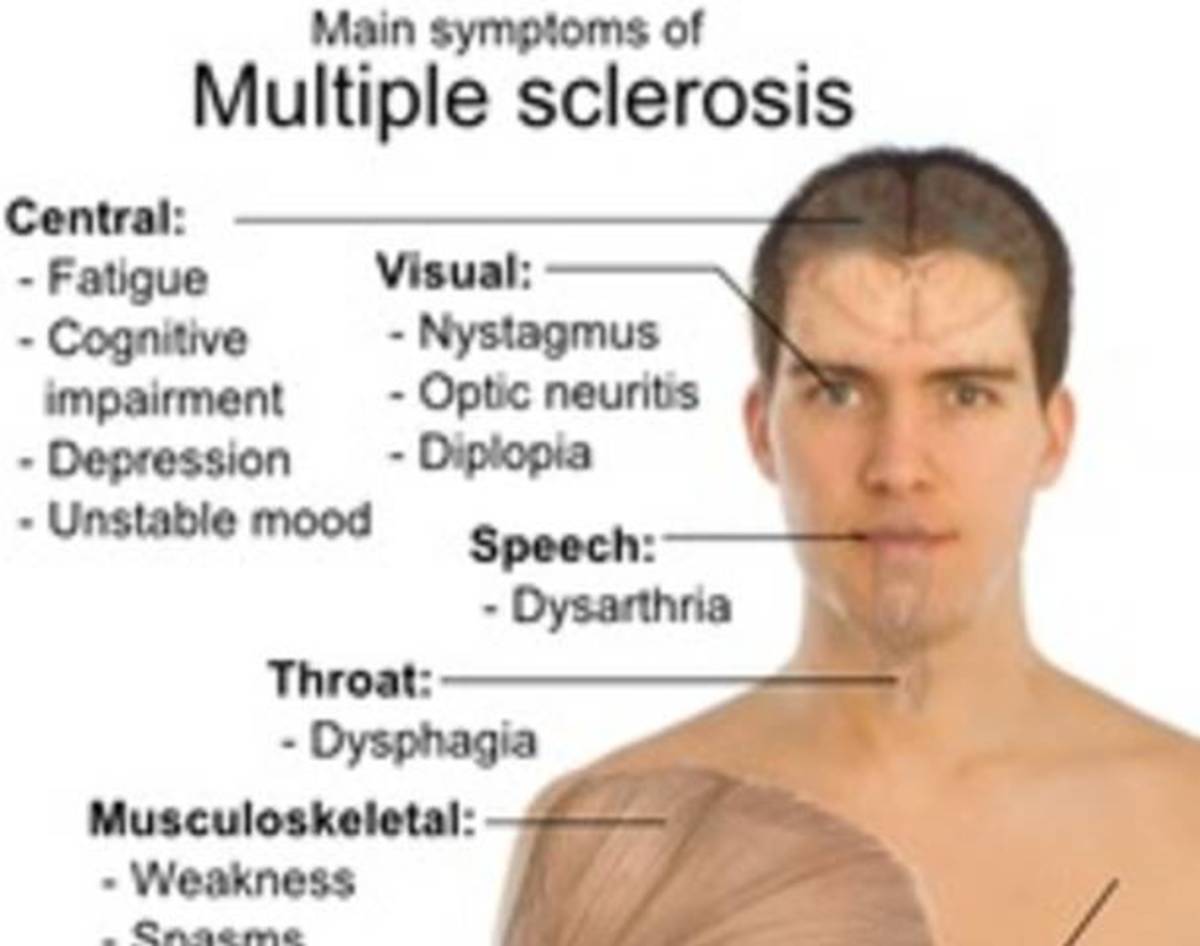A Terrible Disease Multiple Sclerosis

My great grandmother was born in 1891 and she had Multiple Sclerosis. She was the happiest person I knew. By the time she was in her mid 20's she had developed MS. The stories I have been told was that for about 5 years or so instead of sitting in her wheelchair she would push it even though it was difficult for her. By her early 30's she could no longer push the wheelchair she was in it. But my grandmother would tell me she was still a happy woman. She never let her disease get her down. By the time I came along my great grandmother was 67 and bed ridden, not having the strength to sit up in her wheelchair. Being in her bed was the only way I remember ever seeing her. My mom would line up myself and my siblings and my great grandmother would try and guess which ones we were. We lived 550 miles away so only visited my great grandmother once a year. She would always laugh when she got our names wrong. She knew all our names but as kids do, we changed in a years time and it was one of her favorite things when we came to visit, to try and put the right name with the right kid. She passed away at the ripe old age of 81 in 1972 when I was 14 years old. I still miss her, but I will always remember her spirit and laughter. I often wondered how she stayed so upbeat when she had been ill for most of her life. It's something I will never know.
Facts About Multiple Sclerosis
Multiple Sclerosis occurs when the body's immune system malfunctions and eats away the protective sheath that covers the nerves. Without the protective sheath the communication between the brain and the rest of the body becomes impaired. Severity of symptoms vary from person to person and affects the ability to walk and in some people to talk. My great grandmother was able to talk her entire life and the MS mainly took away her ability to walk. That was her greatest problem. In some people with MS, just getting diagnosed is sometimes difficult because in the early stages symptoms may come and go sometimes for months at a time.
Although MS can occur at any age the majority of people get it most often between the ages of 20 and 40. More women then men also get this disease.
Because MS affects different nerves in people, some people may have certain symptoms while other people do not. MS doesn't affect the same nerves in everyone. Some of the most common symptoms of MS are:
- Weakness or numbness in one or more of the limbs, usually one or the other side of the body or the lower half of the body.
- Partial or complete loss of vision, usually one eye at a time.
- Blurring or double vision.
- Pain or tingling in different parts of the body.
- Electric shock sensations with head movement.
- Unsteady gait.
- Fatigue.
- Dizziness.
- Bladder and Bowel dysfunction
- Cognitive function.
- Emotional changes and Depression..
These are the most common but certainly not all the symptoms of MS.
Causes
Why one person gets MS and the next does not is still a mystery to scientists. Some theories that are being studied are the immune system, genetics, and viral infections. Scientists think that some risk factors may increase your chance of getting the disease. Risk factors include:
- Age, the most common age to get the disease is between 20 and 40.
- Your gender, women get Ms twice as much as men do.
- Heredity, if you have a close family member with MS your chance of getting it increase to a 1 to 3 % chance while the general population has a 1 tenth of 1 % chance of getting the disease.
- Infections, The Epstein Barr virus which is the virus which causes mononucleosis has been linked to MS. However scientists are still working on how Epstein Barr might cause this to happen.
- White people with northern European ancestry are at the highest risk for developing this disease. Asian, African and Native Amerians have the lowest risk. Scientists think this is because the body produces vitamin D with exposure to sunlight and those of the north have less sunlight. Scientists also think that if a child living in a high risk area moves to a low risk area before puberty will then have the lower risk. If the person moves from higher risk area to lower risk area after puberty then they retain the higher risk. Interesting.
- Other diseases such as Thyroid disease, Type 1 diabetes, and Inflammatory bowel disease seems to increase the risk of developing MS.
Treatments
There is no cure for Multiple Sclerosis. There is only medications to treat the symptoms and make the patient more comfortable. Once the protective sheath is eaten away by the bodies immune system, damage to the nerves occurs and this is irreversible. In some people the MS can be so severe that it can become terminal but it is rare. The majority of people with Ms can expect to have a normal or near normal life expectancy. My great grandmother lived to the age of 81 having had MS for well over 50 years. So thankfully having MS for most people is not a death sentence, it's just a miserable way to live, unless you don't let it bother you, like my great grandmother.








